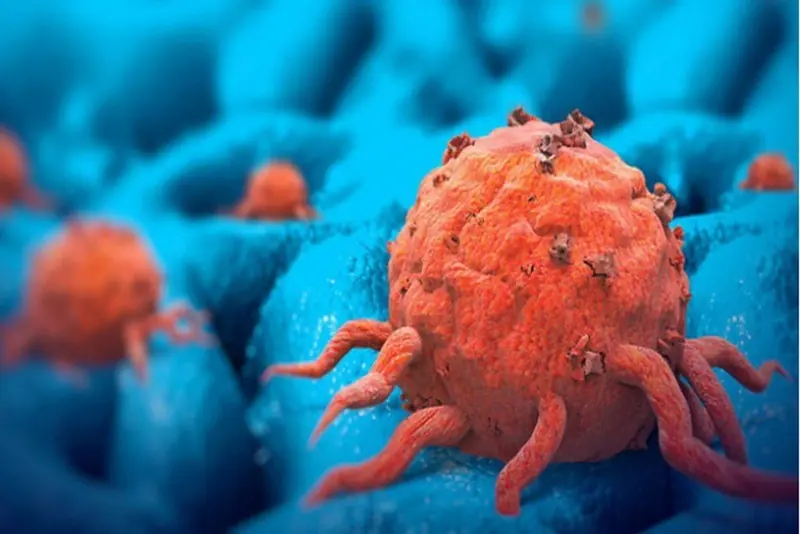
Indiana Boy, 8, Dies Hours After Contracting Rare Brain Infection At School
Indiana Boy, 8, Dies Hours After Contracting Rare Brain Infection At School

An Indiana mother is sharing her profound grief to alert others about a rare bacterial infection that tragically claimed her son's life in a matter of hours.
Last month, eight-year-old Liam Dahlberg of Indiana returned home from school complaining of a headache; the following day, he passed away. The cause was identified as Haemophilus influenzae, commonly referred to as H. flu, which led to severe infections in his brain and spinal cord.
His mother, Ashlee, described experiencing "indescribable pain" as she lay with Liam in his final moments while the medical staff turned off his life support.
Though its name sounds similar to the flu, Haemophilus influenzae is a bacterium, not a virus. Infections from it are far less common but can be much more deadly. While H. flu can innocuously exist in the nose and throat of many healthy people, a weaker immune system or another viral illness, such as a cold, can allow it to enter the bloodstream and cause the body to attack healthy organs.
Ashlee shared with local news station 13wmaz: "I would never wish this kind of pain on my worst enemy ever. It’s hard. To have sat there and listened to the doctors say, ‘You did everything right, there’s just nothing we could do.’ [And] to lay there with him as they took him off life support, I could feel his little heartbeat fade away—there’s no words that can describe that pain.”
The family remains unaware of how Liam contracted the illness, especially since he had received all of his recommended childhood vaccinations against H. flu. Babies typically receive the vaccination in three doses, and it is approximately 95% effective at preventing severe illnesses.
In April, Liam came home from school feeling unwell. The next morning, when his headache persisted, his family took him to the hospital. Ashlee recounted to local news, "They took him to an MRI. That’s when they discovered the amount of bacteria that was covering his brain and spinal cord. Basically at that point in time, there was nothing they could do.”
The infection rapidly spread, leading to meningitis, an inflammation of the membranes surrounding the brain and spinal cord. The damage was so swift and severe that he was deemed brain dead.
On a GoFundMe page created to assist with medical expenses, Liam's family described him as "a bright and smart young boy, full of life and potential." The post further states, "His presence brought joy and warmth to everyone he met.”
Physicians believe Liam may have contracted a breakthrough infection from an unvaccinated student at school who carried high concentrations of the bacteria. H. flu typically resides in healthy people’s noses and is spread through coughing and sneezing.
Before a vaccine was introduced in 1985, the infection used to cause 20,000 severe infections annually in the US, primarily in children under five. Nowadays, there are fewer than 50 cases in young children per year, almost all of which occur in children who are either partially or completely unvaccinated.
However, vaccine uptake has decreased recently, a trend attributed to a generalized skepticism towards vaccines. Ashlee is now urging parents to ensure that all their children have received all recommended vaccinations.
News in the same category


Young Dad Misses Key Cancer Symptom That Left Him Terrified

5 Things Doctors Say You Should Never Give Your Kids to Help Prevent Cancer

World-First Gene Therapy Restores Sight to Boy Born Blind

A Warning About The ‘Worst Thing’ That People Should Never Do When Awakening in the Night

Horrifying simulation shows life-threatening impact of drinking too much water and how it can lead to death
These simulations, tragic stories, and medical data remind us that moderation matters.

Cancer Breakthrough: Scientists Discover Protein That Puts Tumors to Sleep!
With promising results in preclinical trials and a growing understanding of the tumor microenvironment, type III collagen may become a key player in the fight against cancer - not by eradicating it, but by keeping it permanently asleep.

The Amazing Health Benefits and Uses of Castor Oil

Evidence-Based Health Benefits of Raw, Pure, Natural Honey + Turmeric Golden Honey Recipe

Home Remedies for Blocked and Stuffy Nose

Heart surgeon shares four daily habits to avoid for better health

Discover 20 signs of cancer that most women ignore

Essential vitamins for strong and cramp-free legs

Preventing Stroke At Any Age: 3 “Don’ts” After Meals—And 4 “Don’ts” Before Bed

8 Signs That Indicate You Have Too Much Sugar

America’s Smile at Risk: The Terrifying Truth About a Fluoride-Free Future
If fluoride is removed from water supplies without viable alternatives in place, millions of Americans-especially children-may suffer the consequences in the form of increased cavities, dental pain, and long-term health impacts.

New Hope for Millions: Revolutionary Drug Could "Bring Brain Back To Life' And Fight Parkinson’s
This new development is part of a broader shift in how scientists approach neurological diseases. Instead of focusing solely on halting degeneration, researchers are increasingly exploring neuroregeneration - ways to repair or replace damaged cells and re

Go to Bed Hungry and Wake Up Smarter? New Research Says Yes!
The idea that mild hunger might optimize the sleeping brain’s rhythm is both surprising and deeply intriguing.

'Healthy' 38-Year-Old Shares His Only Bowel Cancer Symptom — And It Wasn't Blood in the Loo
News Post

What Causes Those Strange Ripples In Your Jeans After Washing?

‘Healthy’ 38-year-old shares the only bowel cancer symptom he noticed — And it wasn’t blood in the loo

Young Dad Misses Key Cancer Symptom That Left Him Terrified

5 Things Doctors Say You Should Never Give Your Kids to Help Prevent Cancer

Terrifying Truth Behind Mysterious ‘Circle Of Bubbles’ In The Ocean Revealed

People Stunned After Learning The True Meaning Behind ‘SOS’ — It’s Not What You Think

After Spending 178 Days In Space, Astronaut Shares a ‘Lie’ He Realized After Seeing Earth

People Shocked To Learn What The Small Metal Bump Between Scissor Handles Is Actually For

Scientists Use AI And Ancient Linen To Reveal What Jesus May Have Truly Looked Like

Earth may witness a once-in-5,000-year event on the moon and it's coming sooner than you think

AI is willing to kill humans to avoid shutdown as chilling new report identifies 'malicious' behaviour

Horrifying simulation details exactly how cancer develops in the body

Elon Musk slammed for posting creepy video of 'most dangerous invention to ever exist'

World-First Gene Therapy Restores Sight to Boy Born Blind

World’s Rarest Blood Type Discovered—Only One Woman Has It
The woman with Gwada negative blood may not be famous, but her existence has already made an indelible mark on medical science.

A Warning About The ‘Worst Thing’ That People Should Never Do When Awakening in the Night

Columbia Student Suspended After Creating AI That Helps You Cheat Your Way to a Six-Figure Job!
Despite being out of school, he remains optimistic about the future. With growing venture capital support and rising user demand, Cluely may be on track to become a key player in the next wave of controversial tech startups.

100-foot ‘doomsday’ mega tsunami could obliterate US West Coast at any moment
